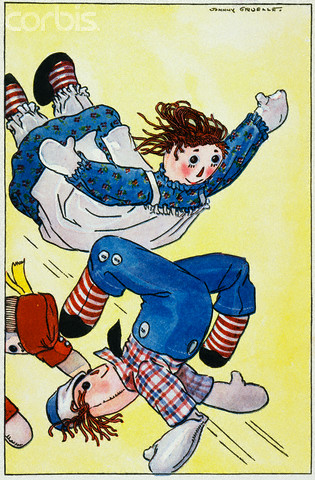Fifty glimpses of the law and its impact, plus one at the end for D.C:
Hawaii: Kailua doll shop closes despite CPSC enforcement stay (w/video); Honolulu Honey Baby shakes leis and hula skirts in dismay;
Alaska: “Why you should care about CPSIA, and what you can do about it”.
Washington: Don’t miss this helmet anecdote from Whitman County;
Oregon: Milagros Boutique of Portland: “One of our local vendors has decided to throw in the towel rather than wait and see if the CPSIA is amended.”
California: Thanks to stay, Whimsical Walney will close down only temporarily, not permanently;

Utah: “We will have to lock our doors and file for bankruptcy,” said Shauna Sloan, founder of Utah-based children’s resale chain Kid to Kid. Glory Quilts: “My longest blog post ever — and the most angry“;
Colorado: Emily Werner: “Today, I have diaper making to do. But I also am ready to stuff envelopes“;
Idaho: Squares of Flair, from Eagle, is on the Endangered Whimsy list. And if you’re thinking of making something bulky for children, like a furniture line, have you considered that none of the nation’s lead testing labs are anywhere near Idaho?
Nevada: Let’s hope Sen. Harry Reid is listening to constituent Molly Orr;
Wyoming: For Kooky Dolls it’s a distinctly non-kooky issue;
Montana: Mark Riffey’s Business is Personal (Rescue Marketing) has helped focus blog attention;
Arizona: “No way” Other Mothers resale stores “can be completely compliant”;
New Mexico: Fashion Incubator and National Bankruptcy Day;

Oklahoma: Farewell jingle dresses, powwow dance clothes, buckskin leggings, concho belts and other Native American celebratory kids’ gear;
Texas: Distress sale at My Pink Zebra Boutique in Katy;
Kansas: Owner of Baxter Springs company that makes organic nursing pillows doesn’t think threat of being “hauled off to prison” is very constructive;
Nebraska: Omaha-connected Baby Leather Moks is on Endangered Whimsy list;
North Dakota: Sunrise Hill Decor, making blocks for play or display, is member of the Handmade Toy Alliance;
South Dakota: Question after our own heart: what would Laura Ingalls Wilder have thought of this law?
Iowa: I may know there are no phthalates or lead in that whimsical chenille baby bib, and you may know it, but have you documented it to the satisfaction of the wary retailer’s lawyers?
Minnesota: Things seem to be going great, with your product line featured on the Martha Stewart show. And then this happens (auto-plays video);
Missouri: Fleece scarves, going too cheap;
Illinois: List-keeping in Naperville. Oprah, please help!
Wisconsin: Owner of Jacobsen Books in Clinton is also worried about small-run adaptive devices used by special needs children;
Indiana: Rebecca Holloway gives ’em a deserved slamming; doll outfits and hair bows;
Ohio: Nicer-than-mass-produced diaper covers; Toledo Physical Education Supply takes a hit;

Michigan: Brandi Pahl wonders: What are they thinking?; NARTS efforts couldn’t save Ionia resale store;
Arkansas: Closing of A Kidd’s Dream consignment shop in Conway doesn’t seem to have done much to change Sen. Mark Pryor’s mind;
Louisiana: The stay: “Hope but no solution“, kids’ Mardi Gras masks;
Mississippi: Sen. Roger Wicker is co-sponsoring DeMint reform bill;
Alabama: About that stay: “Read the fine print“; at least the pink whale got adopted;
Florida: “Many stores have fallen for the false report from the media that consignment stores are exempt.”
Georgia: Thank you, 11 Alive News, for listening to consignment sellers;
Tennessee: eBay seamstresses and Spanish baby gift sellers watching with concern;
South Carolina: Rock and mineral kits: do not eat contents unless you are at least 12 years of age;
North Carolina: Quilt Baby appeals to reason;
Kentucky: Menace of soft texture block set probably overrated;

Maine: Any reform will come too late for Farmington’s Blessed Baby Boutique, shut down last weekend;
New Hampshire: As Commerce Secretary, d’you think Sen. Gregg could help?
Massachusetts: Rob Wilson of Ashland, importer of earth-friendly toys, has done much to spread the word, and impact on libraries noted in Newburyport;
Vermont: “Somewhere in the neighborhood of 95 percent of the merchants on our site would have to shut down,” says Michael Secore of Craftsbury Kids, with co-owner Cecilia Leibovitz a major spreader of word about the law, ditto Barre’s Polkadot Patch;
Rhode Island: Sens. Sheldon Whitehouse and Jack Reed “don’t seem terribly concerned“.
Connecticut: Stamford maker faces $400 testing bill for each $360 run of bibs and napkins, while paperback exchange owner in Bethel terms application of law “insane“;
New York: Issue has captured attention of book publishers, if not of certain newspaper publishers;
New Jersey: You made play food for kids out of felt? No wonder Rep. Waxman is so worried they’ll eat it!
Delaware: Wilmington store Yo-Yo Joe’s is a member of the Handmade Toy Alliance;
Pennsylvania: Going out on a limb, Somerset librarian contends most kids are old enough to know not to put the books in their mouths;
Maryland: The Baltimore Etsy Street Team is on the wing;
West Virginia: Project Linus, which does great charity work in the donation of quilts and blankets, puts on a brave face but its friends are worried;
Virginia: Back away from that ribbon hair bow slowly, now, and we’ll just wait for the hazmat team to arrive;
*District of Columbia: Almost forgot Washington, D.C.! Well, in Washington, D.C., it’s easy to get them to pay attention to problems like these. For example, less than a month ago, the offices of Reps. Henry Waxman and Bobby Rush were instructing colleagues that if they get calls from constituents “who believe they may be adversely impacted by the new law,” it was because the constituents had fallen victim to “confusion” and “inaccurate reporting”. The most important advocacy group behind the law, the implacable Public Citizen, has launched a new campaign to defend it from critics; it was PC’s David Arkush who in December notoriously assailed (scroll to #1) “hysteria” about the law on the part of crafters and small businesses, broadly hinting that they were serving as dupes and stooges of Big Toy interests — perish the thought that they might have figured the issue out on their own! Trial-lawyer-defense groups like the misnamed Center for Justice and Democracy (along with their friends) chimed in with the thought that critics of the law needed to “grow up” (no, don’t bother commenting). CPSC Commissioner Thomas Moore, hewing to a similar line, blames the ongoing ruckus on “orchestrated campaigns to undermine the Act” that “are sowing the seeds of confusion that are upsetting so many small businesses.” Lobbyists and trade associations for mass-production importers and merchandisers are eager to prove their cooperation with the powers that be: “We were early proponents of mandatory laws to require toy testing,” said a Toy Industry Association spokesman the other day.
Washington, D.C. always does so well at listening to the rest of the country.
Filed under: CPSIA, CPSIA and apparel/needle trades, CPSIA and books, CPSIA and Congress, CPSIA and libraries, CPSIA and resale, Public Citizen





